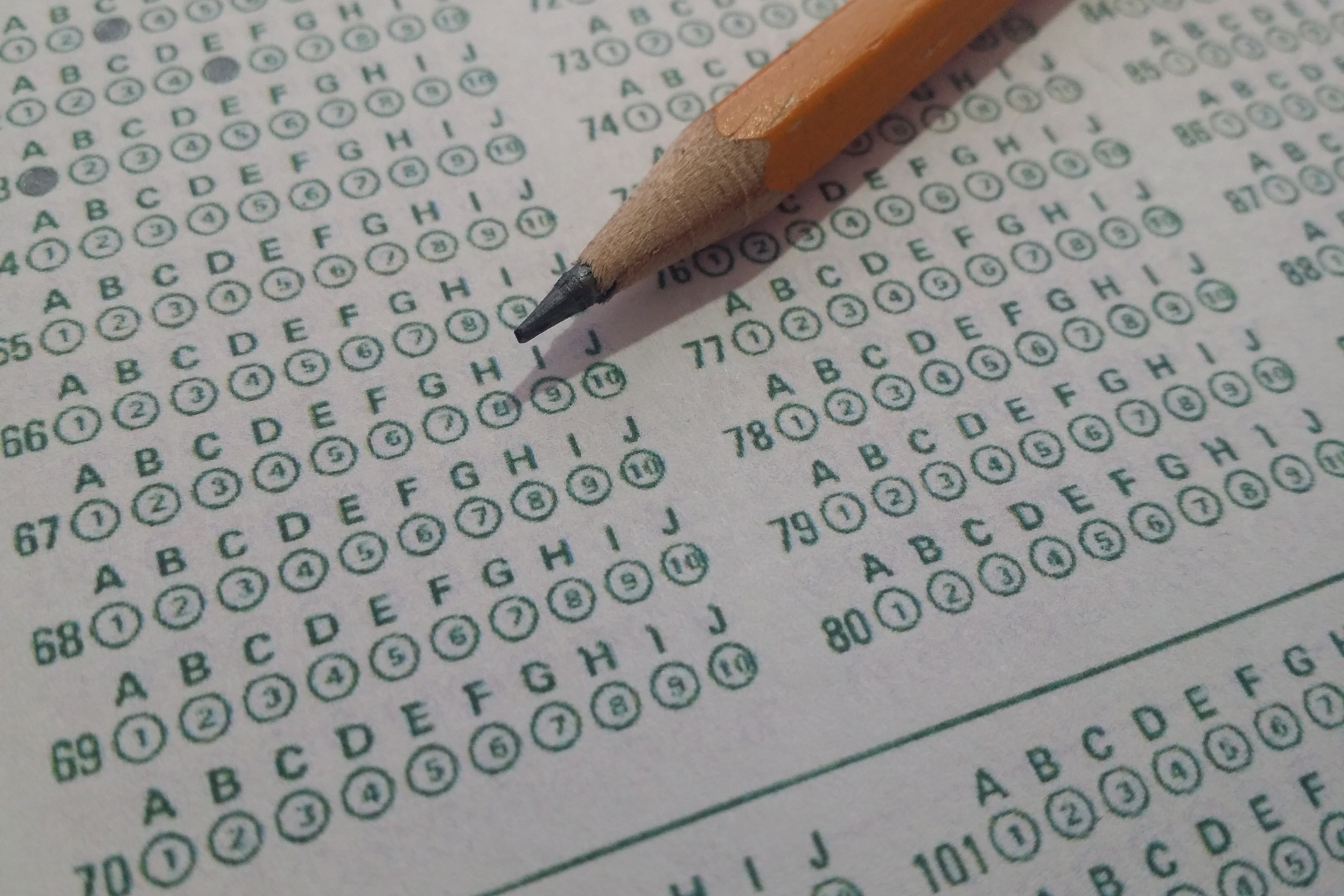How to Know Whether Self-Study or a MCAT Prep Course is Right For You
Are you preparing for the MCAT but unsure whether to opt for self-study or a prep course? This article will guide you through the pros and cons of each option, helping you make an informed decision that suits your learning style and goals.
Posted June 13, 2025

Table of Contents
Aspiring medical students face a tough decision when it comes to preparing for the Medical College Admission Test (MCAT): should they opt for self-study or attend an MCAT prep course? Both options have their advantages and disadvantages, and choosing the right one can make all the difference in achieving a good score and getting accepted into a top medical school. In this article, we’ll explore the pros and cons of each method, how to evaluate your learning style, the costs involved, and tips for staying motivated and measuring progress. By the end of this article, you’ll have a clear idea of which option is right for you.
The Pros and Cons of Self-Study for MCAT Preparation
Self-study is a popular option for students who are short on time or have a limited budget. With a wealth of resources available online, including practice tests, study materials, and video lectures, it’s possible to create a comprehensive study plan without ever leaving your house. However, self-study does require a high degree of self-motivation and discipline to stay on track and meet the demands of the test. Additionally, students who struggle with certain topics may have a difficult time finding resources that effectively explain the concepts.
One advantage of self-study is the flexibility it offers. Students can create a study schedule that fits their individual needs and preferences. They can study at their own pace and focus on the areas where they need the most improvement. This can be especially helpful for students who have other commitments, such as work or family responsibilities.
On the other hand, self-study can also be isolating. Without the support and guidance of a teacher or tutor, students may feel overwhelmed or unsure of their progress. It can be difficult to know if you are on the right track or if you need to adjust your study plan. Additionally, self-study may not be the best option for students who thrive in a classroom setting or who benefit from the structure and accountability provided by a formal course.
The Benefits of Taking an MCAT Prep Course
MCAT prep courses offer a more structured approach to studying for the test, with expert instructors, comprehensive study materials, and personalized feedback. This can be invaluable for students who need extra guidance and support or prefer a more classroom-style setting. Additionally, many prep courses offer diagnostic tests to identify areas of weakness and track progress throughout the course. However, prep courses can have a hefty price tag and may require a significant time commitment, which may not be feasible for all students.
Another benefit of taking an MCAT prep course is the opportunity to connect with other students who are also preparing for the exam. This can provide a sense of community and support, as well as the chance to form study groups and share resources. Additionally, some prep courses offer access to online forums or discussion boards where students can ask questions and receive answers from instructors or other students. This can be especially helpful for students who may not have access to a traditional classroom setting or who prefer to study on their own schedule.
How to Evaluate Your Learning Style to Determine the Best Option for You
When deciding between self-study and an MCAT prep course, it’s important to consider your learning style. Do you prefer to learn independently or in a group setting? Are you able to stay motivated and disciplined on your own, or do you need external accountability? Do you have a strong foundation in the subjects covered by the MCAT, or do you need more guidance and support? Answering these questions honestly can help guide your decision and increase your chances of success.
If you prefer to learn independently, self-study may be the best option for you. This allows you to work at your own pace and focus on the areas where you need the most improvement. However, if you struggle with staying motivated and disciplined, an MCAT prep course may provide the structure and accountability you need to stay on track.
On the other hand, if you thrive in a group setting and enjoy collaborating with others, an MCAT prep course may be the better choice. This allows you to learn from and with your peers, ask questions, and receive feedback from instructors. Additionally, if you need more guidance and support in the subjects covered by the MCAT, an MCAT prep course may provide the resources and expertise you need to succeed.
The Costs Associated with Self-Study vs. MCAT Prep Courses
Cost is a major factor in deciding between self-study and an MCAT prep course. Self-study can be relatively inexpensive, depending on the resources you choose to use. Textbooks, online courses, and practice tests can cost several hundred dollars, while other resources, such as Khan Academy, are free. In contrast, MCAT prep courses can cost several thousand dollars, depending on the provider and level of service. Some courses may even offer financing options or scholarships.
How to Create a Study Plan for Self-Study or an MCAT Prep Course
No matter which option you choose, having a study plan is essential for success on the MCAT. A study plan should include designated study times, specific topics to cover, and practice tests to track progress. For self-study, it’s important to stay organized and motivated by setting small goals and celebrating each accomplishment. For MCAT prep courses, it’s important to attend all classes, complete all assignments, and seek additional help as needed.
Tips on Staying Motivated During Self-Study or an MCAT Prep Course
Studying for the MCAT can be a long and arduous process, so it’s important to keep motivation high to avoid burning out. Some tips for staying motivated include setting realistic goals, taking breaks when needed, visualizing success, and reaching out to study partners or support groups for accountability and encouragement.
How to Measure Your Progress and Identify Areas of Improvement During Self-Study or an MCAT Prep Course
To ensure you’re on track to achieving your target score, it’s important to measure progress and identify areas of improvement. For self-study, this can be done through practice tests and tracking scores over time. For MCAT prep courses, this may include taking diagnostic tests and seeking feedback from instructors. Identifying weak areas can help inform your study plan and increase the effectiveness of your preparation.
The Importance of Practice Tests in Both Self-Study and MCAT Prep Courses
Practice tests are a key component of MCAT preparation, as they provide an opportunity to simulate test conditions and identify areas of weakness. Taking practice tests can also help you build endurance and develop test-taking strategies. For self-study, it’s important to take multiple practice tests to get a sense of what to expect on test day. For MCAT prep courses, practice tests may be integrated into the curriculum and used to track progress throughout the course.
Real-Life Examples of Students Who Succeeded Using Both Methods
Many students have achieved success on the MCAT using both self-study and MCAT prep courses. Some students have found that self-study allowed them to create a custom study plan that suited their individual needs and learning style, while others have found that the structure and support provided by MCAT prep courses were instrumental in their success. Ultimately, success on the MCAT depends on the quality and quantity of your preparation, regardless of the method you choose.
How to Choose the Best MCAT Prep Course for Your Needs
If you’ve decided that an MCAT prep course is the right option for you, it’s important to choose a provider that meets your needs and budget. Some factors to consider when choosing a prep course include the quality of instructors, the comprehensiveness of study materials, the availability of practice tests, and the flexibility of the course schedule. It may also be helpful to research student reviews and ratings of different providers.
An Overview of Different Types of Self-Study Materials Available
Self-study materials for the MCAT can come in many forms, including textbooks, online courses, practice tests, and video lectures. The quality and effectiveness of these resources can vary widely, so it’s important to research different options and read reviews from other students. Some popular self-study resources include the Khan Academy MCAT Collection, the Princeton Review MCAT Self-Paced course, and the Examkrackers Complete Study Package.
The Role of Tutoring in Both Self-Study and MCAT Prep Courses
For students who need extra help or one-on-one guidance, tutoring can be a valuable addition to both self-study and MCAT prep courses. Tutors can provide personalized feedback, help identify areas of weakness, and offer strategies for improvement. Some MCAT prep courses also offer tutoring services as part of their package, while others may charge an additional fee for these services.
Common Mistakes to Avoid When Preparing for the MCAT on Your Own
Preparing for the MCAT on your own can be challenging, but there are some common mistakes that can be easily avoided with proper planning and preparation. These mistakes include not creating a study plan, neglecting certain subjects or skills, not taking enough practice tests, and not seeking help when needed. By familiarizing yourself with these common mistakes, you can avoid them and increase your chances of success.
Final Thoughts: Which Option is Right For You?
Deciding between self-study and an MCAT prep course can be a difficult decision, but by considering your learning style, budget, and goals, you can make an informed decision about which method is best for you. Remember, success on the MCAT depends on the quality and quantity of your preparation, regardless of which option you choose. Whether you opt for self-study or an MCAT prep course, staying motivated, organized, and focused is key to achieving a top score and getting accepted into the medical school of your dreams.












